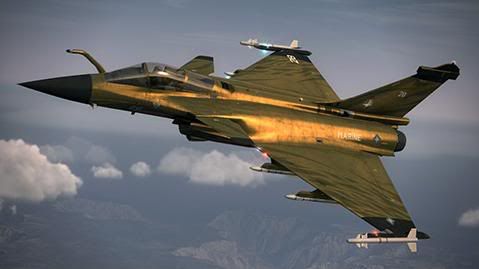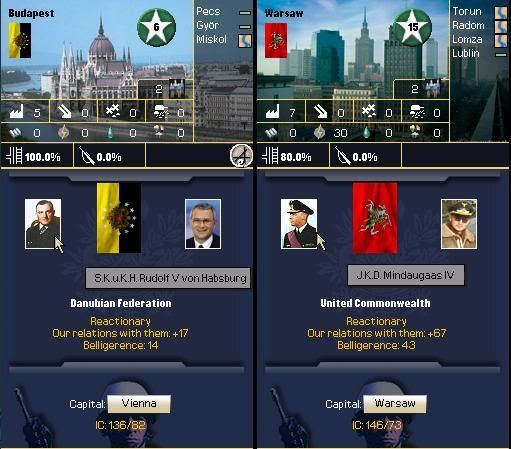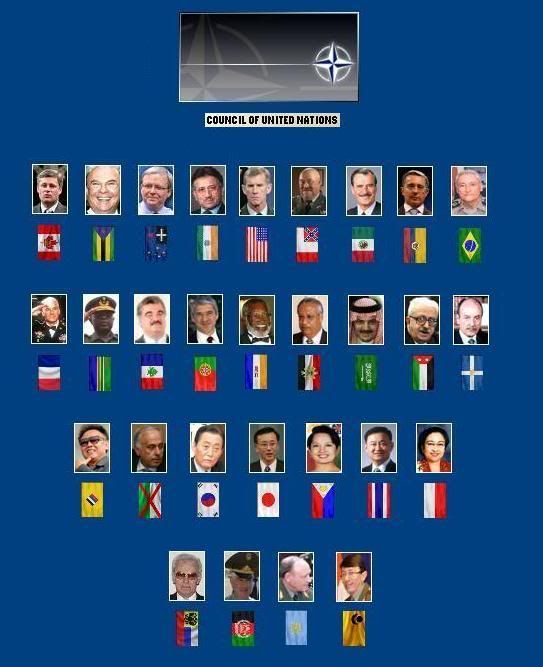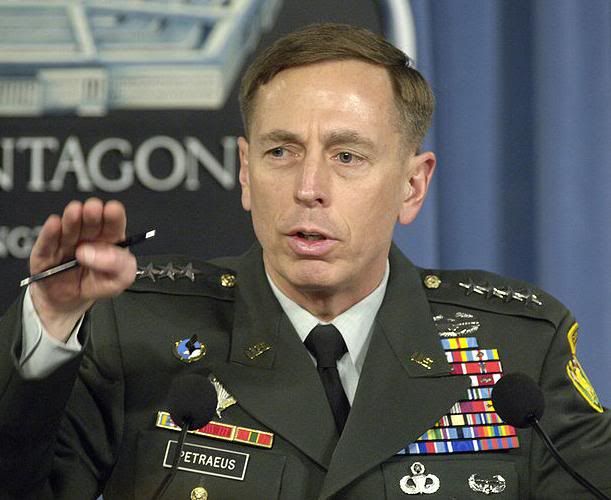That's a truly spectacular air force and navy and they do look huge, but how large are they compared to the other major militaries?
It's a Long Way to Paris: National France in 21st Century
- Thread starter Asalto
- Start date
-
We have updated our Community Code of Conduct. Please read through the new rules for the forum that are an integral part of Paradox Interactive’s User Agreement.
You are using an out of date browser. It may not display this or other websites correctly.
You should upgrade or use an alternative browser.
You should upgrade or use an alternative browser.
Special task fleet for amphibious assaults called ''Invasion Fleet'' was mix of armed landing platforms of Foundre class, transport ships of older types, and frigates for protection against enemy submarines, missiles and aircraft.
I wish modern militaries were this honest. Everything's called Defence this and Protection that, but they're not fooling anyone.
I am impressed with your Naval Forces. It just makes me wanna fly a Rafale, in fact I'm gonna fly one right now!!! 

Personally, I wonder how large it is compared to our allies. No offense, but I doubt it's enough against Germany alone, unless I'm surprised.

Personally, I wonder how large it is compared to our allies. No offense, but I doubt it's enough against Germany alone, unless I'm surprised.
Last edited:
La Royale looks very impressive, and battle hardened when you look at all of those sunk Syndie ships. The Spanish, Italian, Fake French, and Austro Hungarian navies are going to feel some real pain in the future I think.
@ Razgriz 2K9: Great pic, I'm glad to have you and your fighter in our air force. 
Thanks for comments, everyone!
Algiers, 20 June 2011
In the evening hours, President Dassault was returning from central HQ of Gendarmerie, fourth branch of French military, where he performed the last inspection. HQ was located in Algiers and it was not far to Presidental Palace from there. Not far from the Palace, phone ringing disturbed President's thoughts. It was an urgent call. President ordered driver in the front seat that the change of path is needed. Black Citroen speeded up and headed for the headquarters of joint command of French intelligence services.
Mitteleuropa had striked again. In 20 June, French intelligence lost the contacts with all important operatives and informers in Central and Eastern Europe. Other members of Entente with strong intelligence networks in those European regions suffered similar blow. The largest damage was done to French and Russian intelligence, which had the strongest presence in those areas. Soon, Entente managed to get some information on those events from informant on high position in Prague. Joint counter-espionage operation of German, Austro-Hungarian, Lithuanian, White Ruthenian and Ukrainian counter-intelligence and security services. Many Entente agents didn't know that Mitteleuropa is watching them all the time. The cost for this mistake was high. Most of agents were captured or even killed in try to resist the arest. More fortunate ones managed to leave the dangerous countries un-noticed.
But this counter-intelligence operation was only prelude to even more serious events. Mitteleuropa used all it's strength to eliminate the spy nests in those regions to prepare the ground for further operations. After the Entente intelligence blackout, Mitteleuropa striked again. This time the victim was Romania, country that was approaching the Entente quickly. Austria-Hungary and Ukraine launched swift invasion. The war was over in two weeks. Many Romanian units were destroyed by enemy aircraft, including the most of Romanian air units, which were destroyed on the ground. Enemy troops broke the defences and entered Romanian territory. Ukrainian armies secured Bessarabia and Austro-Hungarian forces did the rest. Romania signed unconditional surrender.
After the elimination of potential Romanian threat, it was time for reformation. Leadership of Austria-Hungary, being aware of boiling national tensions that were getting stronger with anexation of big part of Romania, decided to activate the emergency solution. Vienna and Budapest agreed to make an extraordinary revision of Augleich from 2007, thus creating Danubian Federation, dressing dual monarchy into coat of national equality. However, Vienna and Budapest preserved the most of influence via informal paths. Minor nations were pleased with this solution and greeted the reforms which gave them more freedom. Despite giving away some power, Vienna and Budapest prevented the rise of national dissent that could jeopardize the monarchy in case of war.
Similar reforms happened in the Eastern Europe. Old king died in 2010, leaving no ancestors behind, and Kingdom of Ukraine was ruled by Hetman Svyda who occupied the position of regent, preserving the position of head of goverment too. Concerned by rising Russian threat, Ukrainians and Lithuanians started with negotiations. Due to intrigues that caused unstability in White Ruthenian royal court, White Ruthenia soon joined the talks in hope of revival of political stability. Aided by German lawyers, the three nations signed a Treaty of Cracow just some days after the fall of Romania. The main cause for creation of this commonwealth was the fear of Russian threat. Strong guard in the East was also in interest of Berlin. And so, the United Commonwealth came into existance. This federation of five states (Poland, Lithuania, White Ruthenia, Ukraine and Moldova) inherited existing national armies, creating strong armed force. It was decided that Commonwealth will be lead by Lithuanian king who enjoyed the support of Germany.


Thanks for comments, everyone!
Algiers, 20 June 2011
In the evening hours, President Dassault was returning from central HQ of Gendarmerie, fourth branch of French military, where he performed the last inspection. HQ was located in Algiers and it was not far to Presidental Palace from there. Not far from the Palace, phone ringing disturbed President's thoughts. It was an urgent call. President ordered driver in the front seat that the change of path is needed. Black Citroen speeded up and headed for the headquarters of joint command of French intelligence services.
Mitteleuropa had striked again. In 20 June, French intelligence lost the contacts with all important operatives and informers in Central and Eastern Europe. Other members of Entente with strong intelligence networks in those European regions suffered similar blow. The largest damage was done to French and Russian intelligence, which had the strongest presence in those areas. Soon, Entente managed to get some information on those events from informant on high position in Prague. Joint counter-espionage operation of German, Austro-Hungarian, Lithuanian, White Ruthenian and Ukrainian counter-intelligence and security services. Many Entente agents didn't know that Mitteleuropa is watching them all the time. The cost for this mistake was high. Most of agents were captured or even killed in try to resist the arest. More fortunate ones managed to leave the dangerous countries un-noticed.
But this counter-intelligence operation was only prelude to even more serious events. Mitteleuropa used all it's strength to eliminate the spy nests in those regions to prepare the ground for further operations. After the Entente intelligence blackout, Mitteleuropa striked again. This time the victim was Romania, country that was approaching the Entente quickly. Austria-Hungary and Ukraine launched swift invasion. The war was over in two weeks. Many Romanian units were destroyed by enemy aircraft, including the most of Romanian air units, which were destroyed on the ground. Enemy troops broke the defences and entered Romanian territory. Ukrainian armies secured Bessarabia and Austro-Hungarian forces did the rest. Romania signed unconditional surrender.
After the elimination of potential Romanian threat, it was time for reformation. Leadership of Austria-Hungary, being aware of boiling national tensions that were getting stronger with anexation of big part of Romania, decided to activate the emergency solution. Vienna and Budapest agreed to make an extraordinary revision of Augleich from 2007, thus creating Danubian Federation, dressing dual monarchy into coat of national equality. However, Vienna and Budapest preserved the most of influence via informal paths. Minor nations were pleased with this solution and greeted the reforms which gave them more freedom. Despite giving away some power, Vienna and Budapest prevented the rise of national dissent that could jeopardize the monarchy in case of war.
Similar reforms happened in the Eastern Europe. Old king died in 2010, leaving no ancestors behind, and Kingdom of Ukraine was ruled by Hetman Svyda who occupied the position of regent, preserving the position of head of goverment too. Concerned by rising Russian threat, Ukrainians and Lithuanians started with negotiations. Due to intrigues that caused unstability in White Ruthenian royal court, White Ruthenia soon joined the talks in hope of revival of political stability. Aided by German lawyers, the three nations signed a Treaty of Cracow just some days after the fall of Romania. The main cause for creation of this commonwealth was the fear of Russian threat. Strong guard in the East was also in interest of Berlin. And so, the United Commonwealth came into existance. This federation of five states (Poland, Lithuania, White Ruthenia, Ukraine and Moldova) inherited existing national armies, creating strong armed force. It was decided that Commonwealth will be lead by Lithuanian king who enjoyed the support of Germany.


Oh that's just wonderful isn't it.
We lost all our spies, and Poland-Lithuania is reborn. That's just wonderful.
That means we are fresh out of countries to influence in Europe.
Blast it Germany. -__-
We lost all our spies, and Poland-Lithuania is reborn. That's just wonderful.
That means we are fresh out of countries to influence in Europe.
Blast it Germany. -__-
Amazing. Here we see over a third of Europe dominated by three kingdoms in the year 2011. Creative!
God Damnit! How come those damn germans and their lackeys keep getting away with this crap? I was hoping to see Romania join the Entente and see the AH empire start crumbling from nationalist revolts. I cannot seriously believe that reforming into the Danubian Federation will stop large scale ethnic nationalism from causing severe problems in that empire, especially now that they have absorbed tons of angry Romanians unwillingly into their fold.
Amazing. Here we see over a third of Europe dominated by three kingdoms in the year 2011. Creative!
Better than a hundred of republics. The best would we three Entente states.
On the bright side, at least we still have Greece and Russia, they are our last footholds in Europe left.
I never did ask, but what is your current stats as far as technology is?
I never did ask, but what is your current stats as far as technology is?
@ Razgriz 2K9: I'll try to post the tech stats in the future, but list of units comes first. 
@ General Hoth: I'll spare agents in mainland France for case of ''D-Day'', it's not reasonable to send people in certain death without any real effect. When liberation of Europe comes, agents will activate partisan nests to start with active resistance, as IOTL in WW2.
@ SovietAmerika: But now it's time for Entente to return the punch.
@ Strategos' Risk: Thanks!
@ Kaiser Mobius: True, Serbs and Romanians will cause much problems to Vienna. However, other nations who are used to Habsburg rule are quite loyal to monarchy, so it's not likely that Danubian Federation will fell apart with ease.
@ Viden: Only three Entente states? Canada should anex entire North America all way down the Panama then!
@ Karaiskandar: Hopefully, the day of liberation will come for Romania.
@ Colonel IronBoot: If Lithuania will continue to grow so fast, Russia will become the part of Commonwealth one day too!
Osaka, 1 August 2011
The 1 August 2011 was historical day for all nations of Entente and Tokyo Pact. This was the day of ''marriage of two alliances''. With representatives of all member states of two alliances signing the ''Osaka Treaty''. With treaty composed of several hundreds pages being confirmed, all countries were mutually recognized in their current boundaries and all potential claims were dropped. New club of nations left all old claims and demands behind in attempt to unite against common enemy and to join their powers in fight for freedom, justice and prosperity. Entente and Greater East Asia Co-Prosperity Sphere (Tokyo Pact in short) were merged into single organization. Entente and Tokyo Pact were now history and all old structures were terminated. New defense organization was born under name ''United Nations Alliance (UNA)'', shortly only United Nations (UN). Alliance quickly became known under informal names for practical use, like ''UN'' or simply ''Allies''.
General political body was manifested in Council of United Nations. This was assembly of political leaders of member states. It was decision of countries who to send to Council. Republics were represented by Presidents or by Prime Ministers (depending on their preferences and views on international cooperations), while monarchies were mainly represented by Prime Ministers, for exception of Saudi king who expressed strong interest to take part in Council. Other monarchs satisfied themselves with delegating their first ministers for representation in Council. Despite the good relations of members, countries were soon divided into several informal interest groups that lobbied for the best solution for their circle during the sessions. American members were gathered around Canada, France secured her influence over Mediterranean and African members, Japan was still watching closely her client states and Russia was doing the same with her satellites.

Council of United Nations Alliance.
It was decided that Council will have it's regular quarters in United States, more specifically in Empire State Building in New York. This magnificent building was built in 1930s, taken over by Syndicalists after revolution and renamed into Workers State Building where various agencies of Combined Syndicates regime had their offices. Building was damaged in war between Entente and Internationale and repaired after liberation. Now it bears the old name again. In the first session of the Council, Secretary-General of alliance was chosen. Among the several candidates, US General David Petraeus, former President of United States, was chosen. Secretary-General was considered to be formal head of defense organization, with Secretariat of UN being considered as executive body and being separated from Council which was considered as representative body that was making decisions with majority of votes. Due to formal equality of members, Concil was presided by Secretary-General, so Secretary-General was also neutral chairman of Council. However, military structures that would be the actual core of defense organization were yet to be formed. In case of war, the Council would hardly organize a session and all actual decisions would have to be made by operational professional structures.

General Petraeus, 1st Secretary-General of United Nations Alliance.
@ General Hoth: I'll spare agents in mainland France for case of ''D-Day'', it's not reasonable to send people in certain death without any real effect. When liberation of Europe comes, agents will activate partisan nests to start with active resistance, as IOTL in WW2.
@ SovietAmerika: But now it's time for Entente to return the punch.
@ Strategos' Risk: Thanks!
@ Kaiser Mobius: True, Serbs and Romanians will cause much problems to Vienna. However, other nations who are used to Habsburg rule are quite loyal to monarchy, so it's not likely that Danubian Federation will fell apart with ease.
@ Viden: Only three Entente states? Canada should anex entire North America all way down the Panama then!
@ Karaiskandar: Hopefully, the day of liberation will come for Romania.
@ Colonel IronBoot: If Lithuania will continue to grow so fast, Russia will become the part of Commonwealth one day too!
Osaka, 1 August 2011
The 1 August 2011 was historical day for all nations of Entente and Tokyo Pact. This was the day of ''marriage of two alliances''. With representatives of all member states of two alliances signing the ''Osaka Treaty''. With treaty composed of several hundreds pages being confirmed, all countries were mutually recognized in their current boundaries and all potential claims were dropped. New club of nations left all old claims and demands behind in attempt to unite against common enemy and to join their powers in fight for freedom, justice and prosperity. Entente and Greater East Asia Co-Prosperity Sphere (Tokyo Pact in short) were merged into single organization. Entente and Tokyo Pact were now history and all old structures were terminated. New defense organization was born under name ''United Nations Alliance (UNA)'', shortly only United Nations (UN). Alliance quickly became known under informal names for practical use, like ''UN'' or simply ''Allies''.
General political body was manifested in Council of United Nations. This was assembly of political leaders of member states. It was decision of countries who to send to Council. Republics were represented by Presidents or by Prime Ministers (depending on their preferences and views on international cooperations), while monarchies were mainly represented by Prime Ministers, for exception of Saudi king who expressed strong interest to take part in Council. Other monarchs satisfied themselves with delegating their first ministers for representation in Council. Despite the good relations of members, countries were soon divided into several informal interest groups that lobbied for the best solution for their circle during the sessions. American members were gathered around Canada, France secured her influence over Mediterranean and African members, Japan was still watching closely her client states and Russia was doing the same with her satellites.

Council of United Nations Alliance.
It was decided that Council will have it's regular quarters in United States, more specifically in Empire State Building in New York. This magnificent building was built in 1930s, taken over by Syndicalists after revolution and renamed into Workers State Building where various agencies of Combined Syndicates regime had their offices. Building was damaged in war between Entente and Internationale and repaired after liberation. Now it bears the old name again. In the first session of the Council, Secretary-General of alliance was chosen. Among the several candidates, US General David Petraeus, former President of United States, was chosen. Secretary-General was considered to be formal head of defense organization, with Secretariat of UN being considered as executive body and being separated from Council which was considered as representative body that was making decisions with majority of votes. Due to formal equality of members, Concil was presided by Secretary-General, so Secretary-General was also neutral chairman of Council. However, military structures that would be the actual core of defense organization were yet to be formed. In case of war, the Council would hardly organize a session and all actual decisions would have to be made by operational professional structures.

General Petraeus, 1st Secretary-General of United Nations Alliance.
Are you telling me you need the whole America, Africa and Asia in order to beat Mitteleuropa?
Well, Mitteueuropa isn't limited to Europe alone you know.
So yeah, we need the combined forces of 4 1/2 continents to challenge the power of 1 1/2 continents.
So yeah, we need the combined forces of 4 1/2 continents to challenge the power of 1 1/2 continents.
Because those 1 1/2 continents are pretty damn powerful.
Great move to create the new United Nations alliance. I cannot wait to see how the coming conflict will begin.
Great move to create the new United Nations alliance. I cannot wait to see how the coming conflict will begin.

